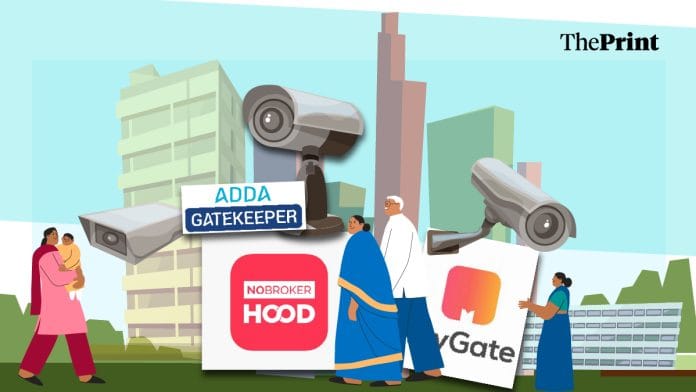Gurugram: First came the unfriendly stares in the hallway. Then came the questions. “What kind of people are coming to your house all the time?” neighbours wanted to know. That’s when Sanjay Lal realised that every time someone rang his doorbell, the other residents of his manicured DLF Phase 3 towers in Gurugram were somehow finding out too.
At the heart of it was the security management app used by his condominium to log every entry and exit. The disapproving looks, Lal said, had started when he began receiving more visitors than usual.
“It made me so uncomfortable,” Lal said. “It was last year, and I had just filed my nomination as an independent candidate for the Haryana Assembly elections. People from all walks of life would come to meet me. The information was only with the society manager and the guards, so how did neighbours get to know?”
Since then, Lal has been on a mission to raise awareness about the privacy risks of security management apps. His long, impassioned messages flood his society WhatsApp groups with a single refrain: these apps may promise security, but at what cost?
“The cost is privacy. The call (to use these apps) has to be made by the residents themselves,” said Lal, who suspects his visitor data was leaked to neighbours.
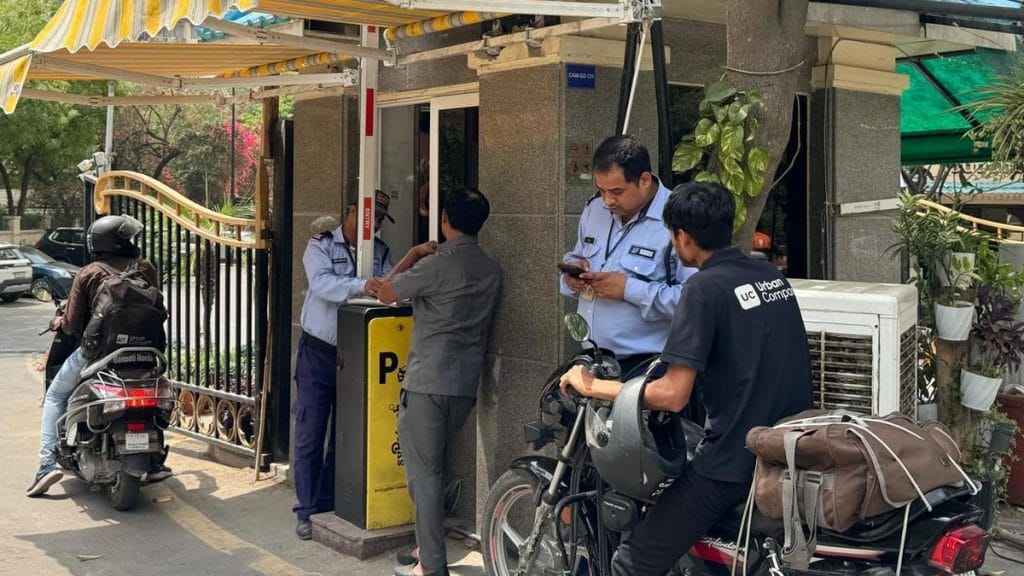
It’s no longer the proverbial nosy uncles and aunties keeping tabs on a housing society’s comings and goings. Apps like MyGate, NoBrokerhood, and ADDA Gatekeeper have transformed how gated communities function. They log who enters and exits, track access to gyms and tennis courts, and list service providers like yoga instructors and grocery shops—right down to the income they generate. Some even record biometric data of domestic workers. With built-in chat features, these apps have effectively replaced WhatsApp groups for many residential communities. During the Covid-19 pandemic, they were even used to track residents and visitors who had tested positive.
They are now about community, commerce, and convenience, as much as they are about security. But as these apps become embedded in daily life, unease is growing about how much data they collect, and where it all ends up.
Privacy experts and lawyers, including the Internet Freedom Foundation, are raising alarm bells. They warn that such platforms infringe on residents’ privacy and expose their personal data. Cracks have begun to show, with users reporting a rise in spam calls after logging in and citing concerns over constant surveillance. The fears escalated in 2020, when leading rivals MyGate and NoBrokerhood filed FIRs accusing each other of data theft.
Let me be clear: we are not the custodians of the data. The data belongs to the RWAs and is stored in AWS cloud servers. For us, residents’ data is sacrosanct
-Abhishek Kumar, co-founder and CEO of MyGate
There’s also increasing awareness of convenience tipping into profiling. In March last year, Zomato’s move to roll out ‘veg-only’ delivery staff in green T-shirts triggered backlash over caste implications, privacy, and even the visibility of residents’ food preferences. The feature was quickly withdrawn.
“These apps can reveal intimate patterns—like who visits you, what communities they belong to, and how often you order food,” said Apar Gupta, lawyer and co-founder of Internet Freedom Foundation (IFF). “When linked to your identity and not securely stored, this data becomes a vulnerability. It can lead to profiling for marketing or even impact things like insurance, based on assumptions about your habits.”
Companies like MyGate insist there’s nothing to worry about. The data, they say, is encrypted, firewalled, and protected by HTTPS protocols. But ultimately, they argue, it belongs to Resident Welfare Associations (RWAs), not them.
Also Read: Gurugram has a giant illegal guest-house problem. Over 4,000 notices, yet business as usual
One app, two camps
It is a battle between convenience and privacy at the Gurgaon condominium where Lal resides. For the privacy cause, he’s running a mini-crusade. He’s drafted messages, circulated warnings, and even called for a society-wide boycott of app-based security systems.
“Society management apps are a perfect source for cyber criminals. We are willingly providing complete details on their servers,” he wrote in the WhatsApp group of the Federation of Apartment Owners Association (FAOA).
The app makers strongly disagree. For them, if there are any issues, it’s not because of their systems.
“Let me be clear: we are not the custodians of the data. The data belongs to the RWAs and is stored in AWS cloud servers,” said Abhishek Kumar, co-founder and CEO of MyGate. “For us, residents’ data is sacrosanct.”
But Lal, a former secretary of his society, is convinced such apps do more harm than good. He claims to be a first-hand victim of privacy infringement.
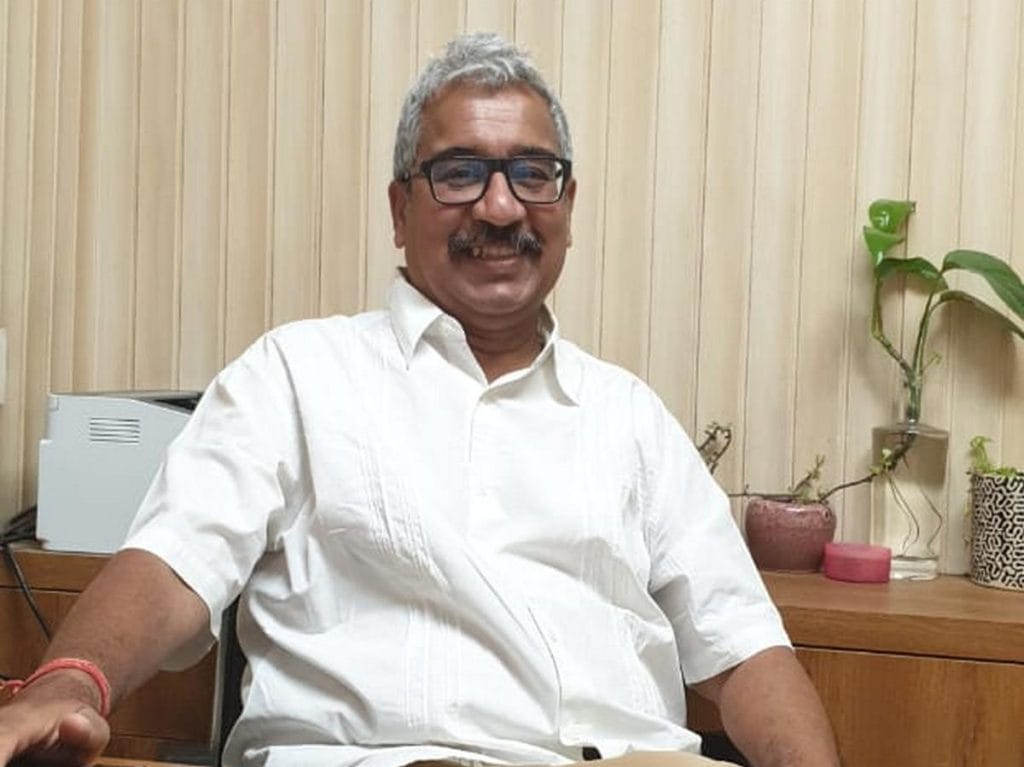
“I can only educate citizens,” he said. “They have to rise and force their associations to cancel the agreements with such applications. I’ve already started the movement in my complex.
Before switching to MyGate, the society used NoBrokerhood for security and management services. The shift happened during Lal’s tenure as secretary, following an RWA meeting where residents complained of delayed alerts, poor backend support, and erratic service.
For nearly a year before adopting MyGate, the society had no app at all. According to Lal, intercoms did the job without the added risk of privacy violations.
But for many residents, the apps offer a level of control that intercoms never could.
For 62-year-old Poonam Sood, a retired professional from the apparel industry, the app has been incredibly freeing. She says it does what traditional intercoms cannot.
“From a woman’s perspective, I no longer have to worry about my safety. The notification comes straight to my phone, and I can approve or deny entry instantly. Even if I’m at work or travelling out of town, I still have complete control,” said Sood.
When things go digital, these changes are bound to happen. Of course, with every flower comes a thorn — but this is the world we live in now, and we have to move with it
-Meena Ayri, Gurugram resident
The app also brings peace of mind to 65-year-old ex-cricketer Meena Ayri since it helps her keep tabs on the domestic workers she employs. She knows when they’ve entered or left the complex without needing to call the guard or the workers. The same goes for visitors.
“You already know who’s coming, you’ve shared the QR code with them in advance. There’s a sense of convenience — no unexpected visitors, no constant ringing of the doorbell. Mentally, you feel free and secure because you’re prepared,” she said.
She doesn’t love the idea of being tracked herself but she also doesn’t want to go back to the old system.
“When things go digital, these changes are bound to happen. Of course, with every flower comes a thorn — but this is the world we live in now, and we have to move with it,” she added.
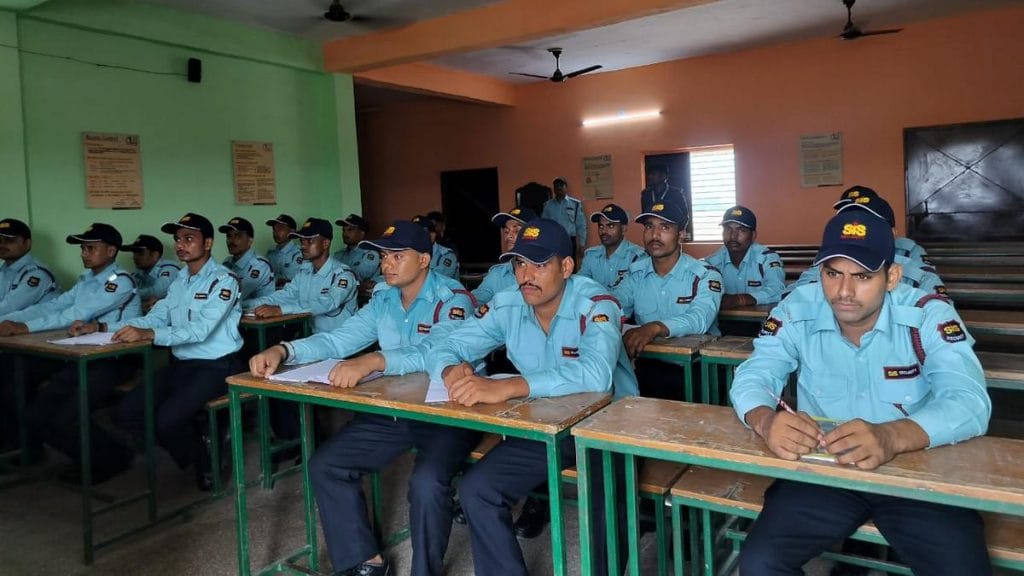
However, others are gravitating to Lal’s camp. A group of about 20 households led by him has raised complaints about MyGate with the RWA president, Lt Gen AS Bajwa. Their grievances range from alleged privacy breaches to inconsistencies in visitor entry logs.
Bajwa now finds himself caught between two opposing camps. One side argues that the kind of information being collected—names, phone numbers, photographs—is already shared routinely with banks and telecom companies. The other warns of overreach and increasing digital vulnerability, especially with so much interlinked data concentrated in one place.
In response, Bajwa has reached out to MyGate for clarification.
“They told me they have numerous societies in Gurugram using the app,” he said. For now, he has requested two weeks to understand how the system works and hold regular meetings with residents.
“I need to thoroughly understand how the app might be breaching or violating privacy. I have also asked residents to give me a list of ten pointers of their complaints,” he said.
These worries are only now catching up with the phenomenon of app-based housing management, which took off less than a decade ago.
Digital takeover, security to ‘maid reviews’
Tattered registers and Reynolds pens were the only tools condominiums used to track who came and went. Then in 2016, the co-founders of MyGate, began knocking on doors in Bengaluru’s gated communities with a pitch: go digital. Security management in India’s high-rises was about to go through a sea change.
They began by identifying apartment clusters, reaching out to RWAs, often through friends and alumni networks, and introducing them to their ‘new’ concept.
“Every time we explained our idea, it was an ‘Aha!’ moment for the society,” said Kumar, an alumnus of IIM-Ahmedabad.
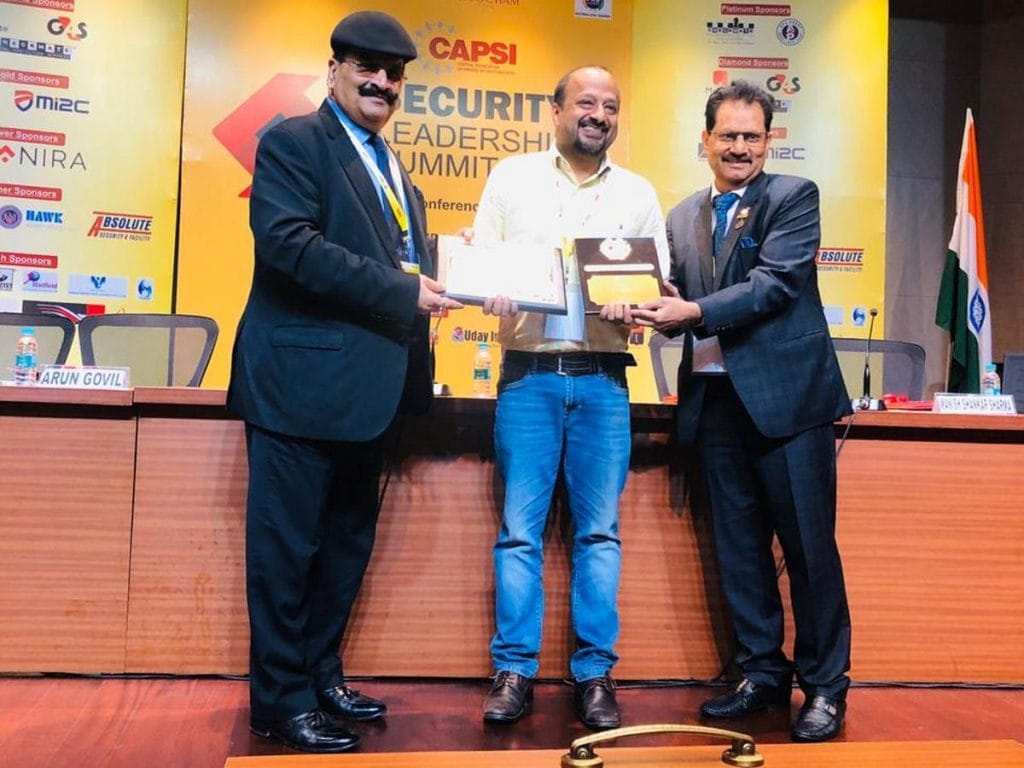
The door-to-door pitch quickly turned into a full-fledged business. As more communities signed up, the founders stepped back and let their sales team take over.
Today, MyGate says it serves over 25,000 communities and 4 million households across India.
“What we did ourselves in the beginning is now handled by our sales team. They identify communities where MyGate isn’t installed, meet the RWAs, walk them through what we offer, and then implement the system,” said Kumar.
Two years later, in 2018, NoBrokerhood—a subsidiary of real estate platform NoBroker— stepped into the space. MyGate had the first-mover advantage, but both apps expanded rapidly. And so did concerns around privacy and data protection.
Both providers have attempted to allay concerns and say they follow the EU General Data Protection Regulation (GDPR) protocols, as well as ISO 27001 security standards. Both highlight their strong encryption policy.
“The app is ISO 27001 certified and audited regularly. MyGate’s application and data servers do not use publicly accessible IP addresses and are further secured through a VPN tunnel with two-factor authentication,” reads the privacy policy of the MyGate website.
NoBrokerhood also makes note of the biometric data it collects “for maids and staff” and how it is converted using one-way encryption techniques “to ensure that it can never be recreated”.
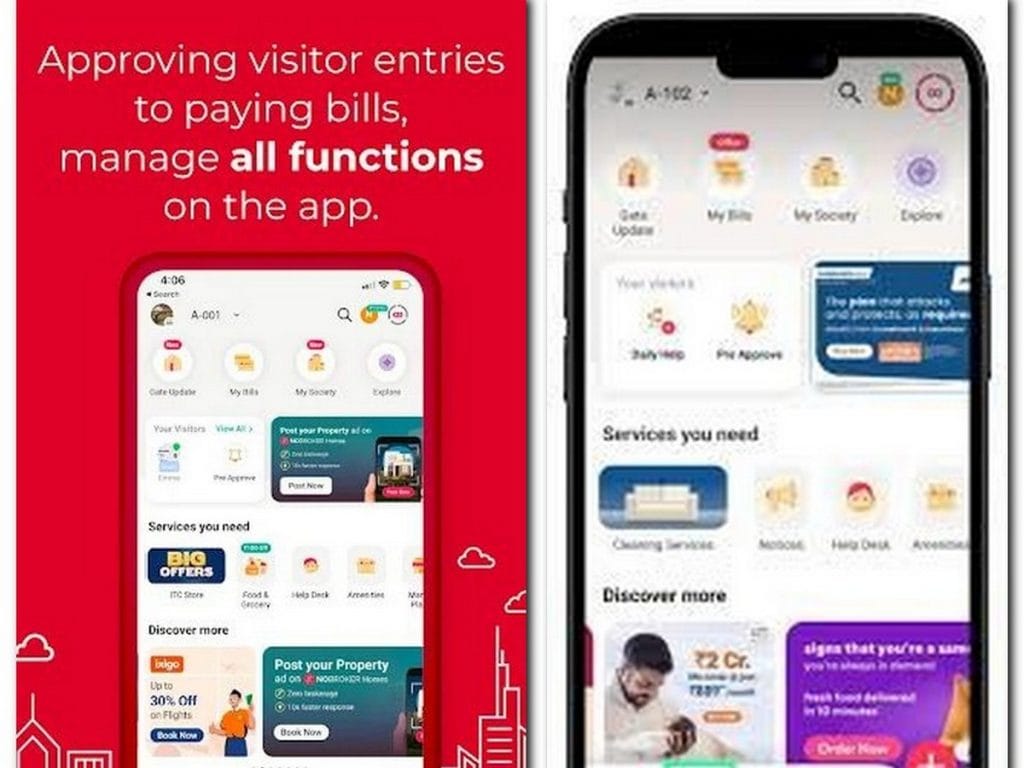
However, Akhil Gupta, co-founder of NoBrokerhood, says security trumps privacy. He argues the app is still safer than scribbling down information in registers that anyone could leaf through.
“You can’t cite privacy as a reason for not sharing things. You are accessing someone’s property, they should know who is coming and leaving. Tomorrow, if something happens, the app will come to the rescue,” said Gupta.
Gupta recounted how the NoBrokerhood app once helped the police and municipal authorities in Mumbai identify and track down a Covid-positive delivery boy who had entered their society.
The value proposition for these apps has now expanded beyond just security. It’s also about community.
“Security and convenience are served to you on a platter. The index to your neighbourhood is at your fingertips, and the camaraderie of a vibrant community looks out for you,” reads the ‘Why MyGate’ section of the company’s website.
MyGate now also functions as a virtual gathering spot and bulletin board for many societies. It’s where people post about available house help, sell used appliances, advertise Zumba lessons, and remind neighbours about maintenance dues. It’s even become an informal jobs board for domestic staff, complete with one-sided reviews of their performance.
Photographs are clicked without consent. IDs are scanned. And most people don’t want the cognitive overload of asking for an alternative method. It’s the same way people keep giving away their Aadhaar number and card everywhere they go
-Nikhil Pahwa, digital rights activist
In a LinkedIn post earlier this month, Kumar wrote: “Now you can mark ‘open to work’ for your daily help in the Mygate App. Residents can find all daily help/driver/cook/nanny through the App and see those who are open to take additional work. Just this small act can give a chance for more job opportunities.”
App users responded with feedback. One wanted a feature to report unfair reviews of domestic workers. “I find it painful to see residents marking 1 star and downgrading maids due to personal differences,” the comment read. Kumar says that he takes the feedback quite seriously.
But when an industry grows, so does rivalry. Things turned ugly in 2020, when MyGate and NoBrokerhood accused each other of stealing proprietary customer data and then using it to pitch their respective services.
In its complaint to the police, NoBrokerhood alleged a “data leak” and accused MyGate of accessing its internal customer base to “chase management community members of societies, urging them to shift to their platform.” MyGate filed a counter-allegation of similar data theft. The incident laid bare how vulnerable customer data had become in the competition between India’s leading security management apps.
Neither Gupta nor Kumar, however, were willing to comment on the dispute.
“That was a complaint. It has settled. We have been directed by the court not to talk about it,” said Gupta.
But privacy experts are speaking about the implications of such apps.
Also Read: What makes Gurugram’s Camellias India’s most exclusive pin code? It’s not just about money
Security, surveillance, scams
When digital right activist Nikhil Pahwa visited an office complex in Gurgaon recently, the guard at the entrance asked to scan his ID. Pahwa refused. Instead, he asked for the building’s privacy policy.
How long is the data stored? he asked. What if I want it deleted?
“The guard had no answers,” Pahwa recalled. “Photographs are clicked without consent. IDs are scanned. And most people don’t want the cognitive overload of asking for an alternative method. It’s the same way people keep giving away their Aadhaar number and card everywhere they go.”
Activists agree that digital safety and security awareness in India is extremely low. And the risks range from identity theft—one in four Indians fell victim according to a 2020 study—to cybercrime and fraud. India lost over Rs 11,300 crore in cybercrimes in the first nine months of 2024, according to the Central government’s Indian Cybercrime Coordination Centre (I4C). And data protections are fuzzy at best.
IIF’s Apar Gupta points to the lack of enforceable legal safeguards. When it comes to apps like MyGate, scrutiny is limited to how aware or proactive the RWA is. There is no overarching regulation guiding the data collection practices of such apps.
“There is no law which is enforceable beyond the contractual agreement—mostly between the app and the society. And that is primarily governed by the contract embedded in the terms of service,” said Gupta.
Supreme Court lawyer Ruchita Thapar Bahl says the problem goes deeper. Even consent—the supposed cornerstone of privacy—is often ambiguous.
“Consent is implied in these apps,” she said. “When you download the app, there is no explicit consent window, but it is already assumed that the consent is given.”
This assumption, Bahl argues, bypasses the principle of informed consent entirely. This is especially true for residents who had no say in the RWA’s decision to adopt the app in the first place.
An article by the Internet Freedom Foundation draws a parallel between today’s security management apps and neighbourhood policing models from the 1970s.
“Such neighbourhood vigilance would encourage residents of a community to take the responsibility of detecting and preventing crime through surveillance of their neighbourhoods which often can be achieved by documenting each other’s movements and visitors,” it read.
Lal, meanwhile, is ramping up his fight against the new app-driven surveillance culture. He is now holding meetings with both new and long-time residents, urging them to understand the implications and what’s at stake.
“In today’s world, your digital imprints reveal your vulnerabilities,” he said. “The latter might be invisible, but it can snowball into a real-life crisis.”
(Edited by Asavari Singh)



